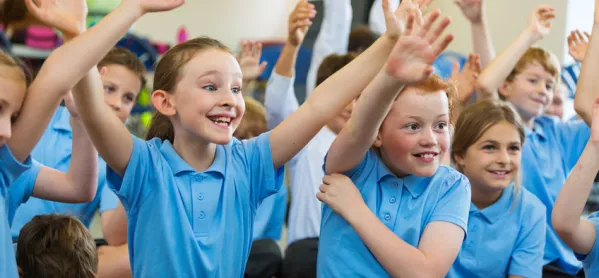Primary pupils whose teachers prepare them emotionally for secondary school perform better academically than their classmates once they reach their new school - but some may become more likely to receive detentions early on in the school year.
Martin Hughes, professor of education at Bristol University, researched the best ways of helping primary pupils adjust to secondary school by following Year 6 pupils in four primaries as they prepared for the transfer. He found that teachers were able to provide particularly effective support for pupils when they worked together with parents.
“Parents and other family members know a great deal about their children’s academic, social and emotional strengths and weaknesses, and how they have responded to change and transition in the past,” he said.
Many parents are able to talk about their own transition experiences, using both positive and negative memories to reassure pupils.
And primary teachers’ detailed knowledge of pupils can prove invaluable to secondary teachers. “We found that they were keen to make their knowledge available to secondary teachers, but this opportunity was often ignored or dismissed,” said Professor Hughes.
In general, children’s attitudes towards school became less positive between Years 6 and 7, he found. But this effect was smaller among those who had received support over the transfer.
Where teachers and parents worked together to give appropriate support, pupils’ achievement significantly improved.
“Social, emotional and academic development are closely interrelated,” Professor Hughes said.
The pupils he followed performed notably better than their peers in literacy throughout Year 7, and achieved slightly higher grades in maths.
Professor Hughes believes that children create a primary identity for themselves and can find it difficult to acquire a new identity as a secondary pupil.
But where teachers helped them to develop confidence in themselves as learners, regardless of their environment, they found it easier to perform academically.
And supported pupils adjusted more quickly to the mechanics of secondary school: they learnt to negotiate their way around the campus more quickly, and found it easier to make new friends among classmates.
However, possibly as a result of this, these pupils also began to misbehave more quickly, and were the first to receive detentions or similar punishments.
Other research has shown that boys and African-Caribbean children tend to find the transfer to secondary school particularly difficult. Professor Hughes therefore believes that support projects should be developed to specifically target these groups.
Such projects could include home visits by teachers, regular telephone calls, and efforts to build up personal relationships with children and their families.
martin.hughes@bristol.ac.uk.




